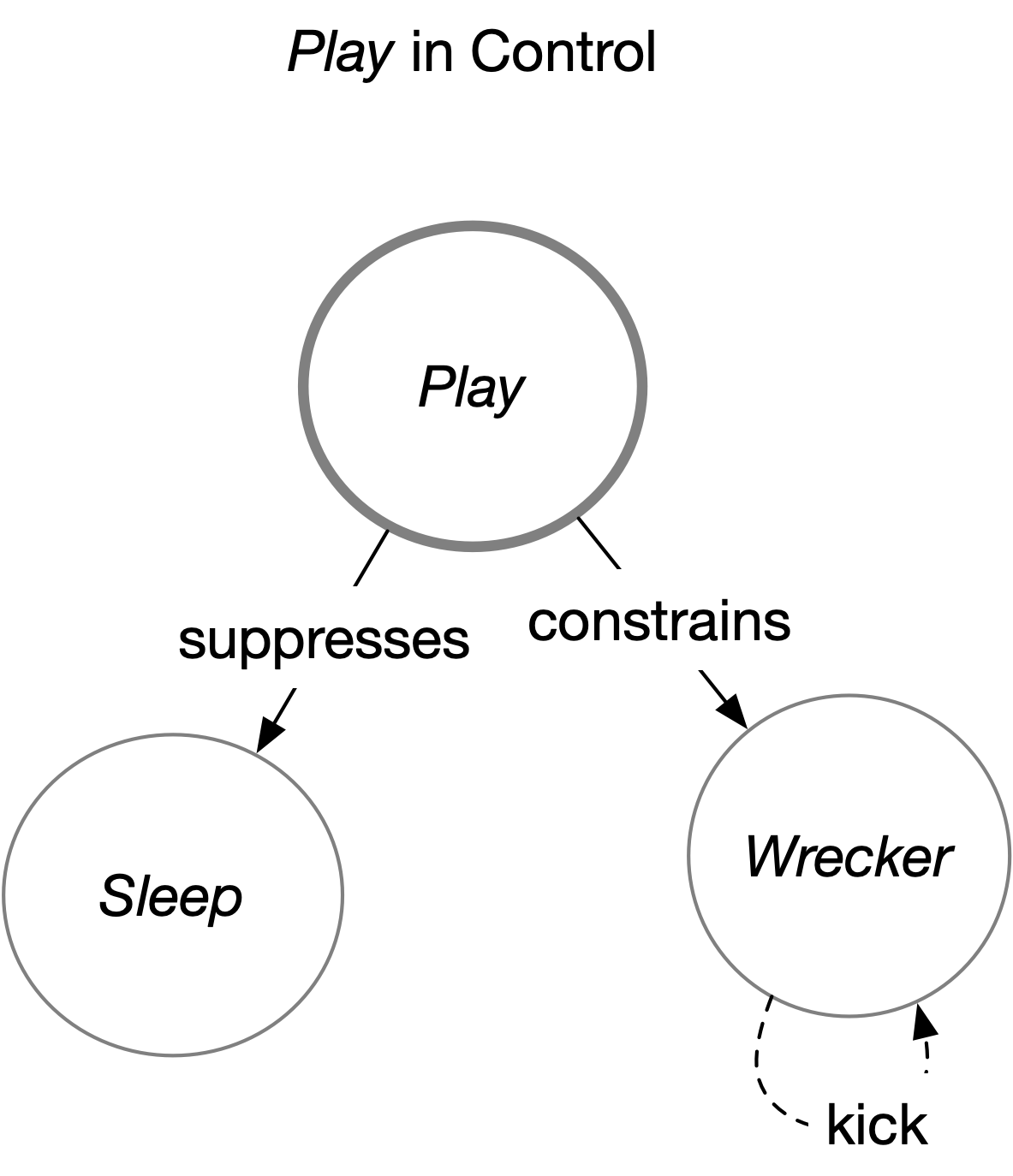Destructive Acts Serving Constructive Goals
Let’s say that the urges of the Play process compete with those of other processes, like Sleep:

If Sleep wrests control, then perhaps a Wrecker-process urge, previously constrained and now freed from Play’s constraint, need only persist for one more kick to gain the satisfaction of a final crash:

This destructiveness may seem senseless, but it may serve to communicate frustration at the loss of a goal, and to serve constructive goals by leaving fewer problems to be solved – the kick may leave a mess “outside”, yet it may tidy the process orchestration.
It isn’t true that when Sleep starts, Play must quit and all its agents have to cease. A mind can “go to bed, yet still build towers in its head.”
Subscribe to get short notes
like this on Machine-Centric Science delivered to your email.